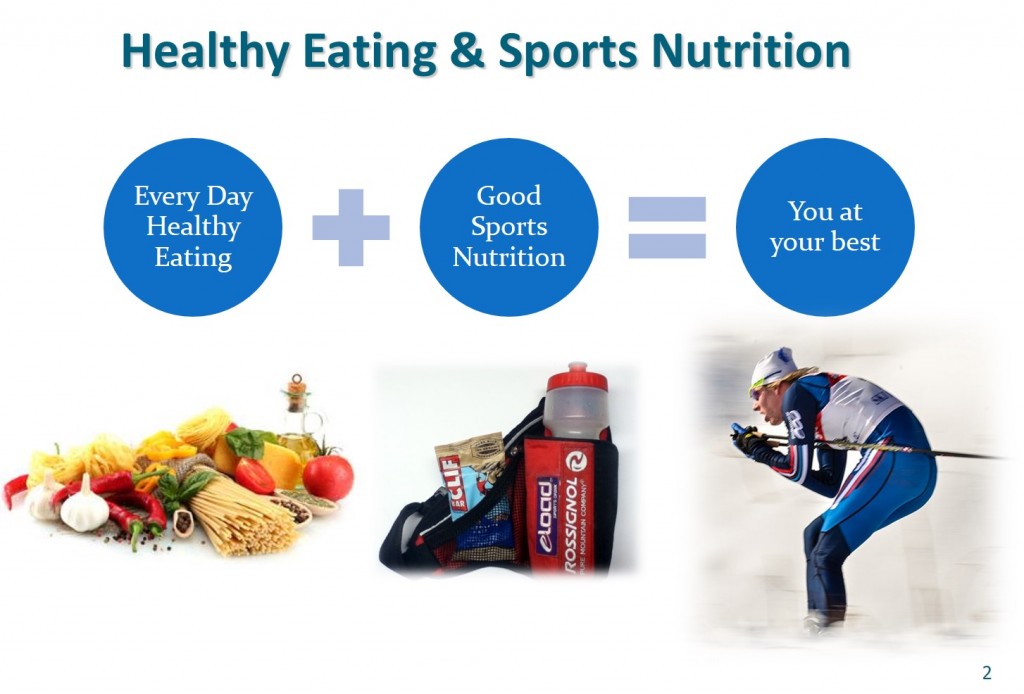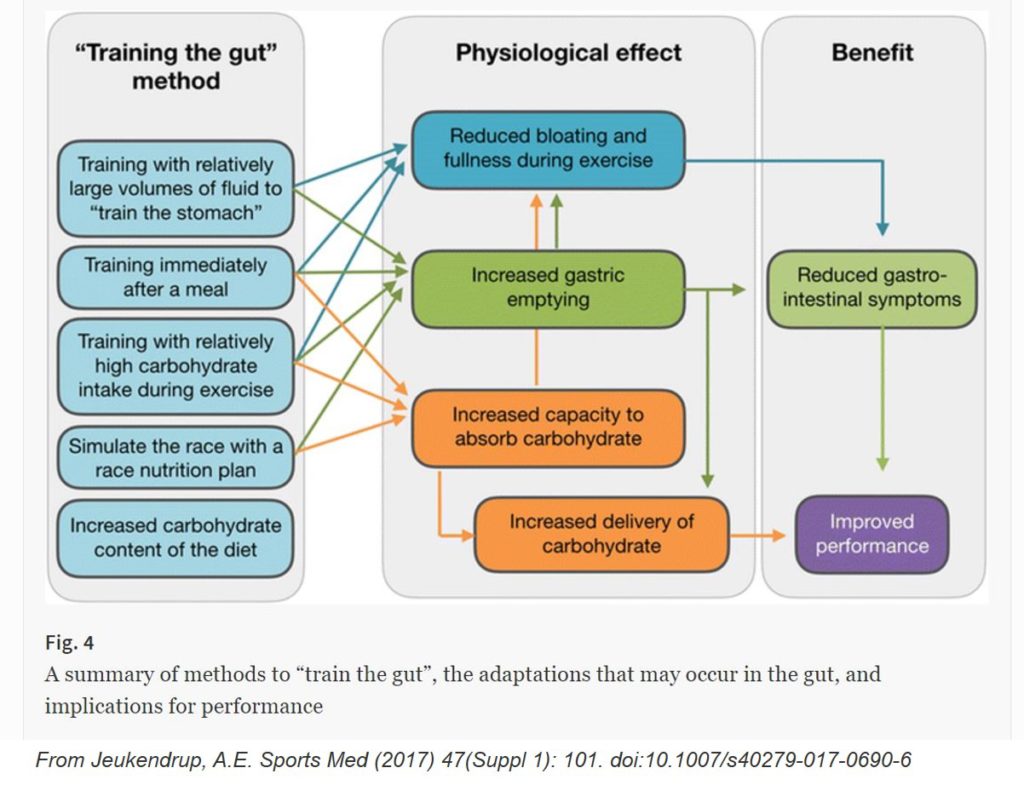Athletes should be mindful of good nutrition for everyday and long-term health, but need different strategies than most people to meet the demands of their sport. Athletes also need to develop good sports nutrition habits so they can perform at their best.
Here’s an overview to help athletes choose the best foods for health and performance.
Guide
1. Overall Healthy Eating
2. Sports Nutrition
3. Food and Recipe Ideas for Athletes
4. Sports Nutrition Resources
Overall Healthy Eating
How Much Protein Do I Need?
Although most people are eating enough protein, many could choose better protein sources and optimize how they distribute their protein intake throughout the day. For example, many people eat too much protein for supper, and too little in the morning. Almost everyone can benefit from including some protein at most meals and snacks to help control blood glucose levels and feel full longer. Athletes are another group who can benefit from better protein distribution, as you’ll see below. Go to Article
You fuel your workouts, but how does the rest of your diet stack up?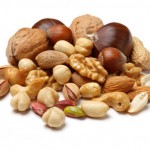
Most athletes know that they should pay attention to choosing the right foods and beverages to help fuel workouts and promote recovery, but when it comes to their overall diet, there seems to be more variability. Improving your diet outside of training can have many benefits. The article provides some tips to help you choose foods that will benefit your overall health. Go to Article >>
The Iron Needs of Athletes: Who Needs More, and How to Get it Through Your Diet
Understandably, athletes are often concerned about iron, because iron is part of hemoglobin in blood and myoglobin in muscles, helping deliver oxygen to cells. Low hemoglobin can result in fatigue and decreased aerobic capacity, leading some athletes to assume that extra iron will enhance performance. Indeed, some endurance athletes take iron supplements regardless of their iron status, even though excess iron might compromise their health. On the other hand, truly iron deficient athletes might not be aware of their status, and changes in their diet or iron supplements might reduce fatigue or improve performance. But dietary changes aren’t straightforward because iron absorption is a complicated phenomenon. Go to Article >>
More Reading on Overall Healthy Eating. . . .
Vegetarian Athletes
-
- Sports Nutrition Guidelines for Vegetarians (Enette Larson, Ph.D., R.D., CSSD)
- Vegetarian ways of eating: Finding the nutrients (Coach.ca)
- Can Athletes be Vegans? (New York Times, November 2014)
Sports Nutrition
What you eat before, during, and after your training can have a big influence on your performance and recovery.
Carbohydrates, an Athlete’s Fuel
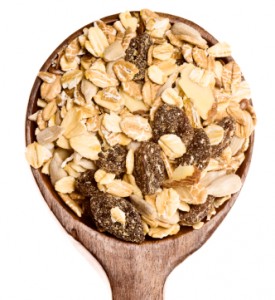 An endurance athlete’s preferred fuel during exercise is muscle glycogen (stored carbohydrate). Endurance or intensity sessions deplete muscles of glycogen, so it’s important to consume carbohydrates to replenish these stores. The more active you are, the more carbohydrate you need: some high performance athletes may need twice as much carbohydrate as the recreational athletes. Studies have shown that athletes who don’t eat enough carbohydrates to match their training volume don’t perform as well.
An endurance athlete’s preferred fuel during exercise is muscle glycogen (stored carbohydrate). Endurance or intensity sessions deplete muscles of glycogen, so it’s important to consume carbohydrates to replenish these stores. The more active you are, the more carbohydrate you need: some high performance athletes may need twice as much carbohydrate as the recreational athletes. Studies have shown that athletes who don’t eat enough carbohydrates to match their training volume don’t perform as well.
Train Your Gut!
Just as you train your body for race day, you can train your gut to optimally absorb and deliver the fuel you need to perform. It is very important to practice fueling strategies during training (i.e, don’t regularly complete 2+ hour workouts with only water). Research shows that you can train your gut to tolerate and increase its ability to absorb carbohydrates . . . waiting until race day to try your carbohydrate fueling strategy means your gut won’t have the capacity to absorb all the carbs, and you’ll risk gastrointestinal problems.
How do you train your gut?
Exercise scientist Asker Jeukendrup is an expert in this area, and discusses the various ways you can train your gut in this paper. The figure below from the paper outlines the methods, and he presents a lay summary here.
The articles below are good resources to help you learn more about the carbohydrates needs of athletes.
- Is more carbohydrate better during exercise? And how much is too much? (Asker Jeukendrup, PhD, FACSM)
- Why carbohydrates are critical for top performance in athletes (Iñigo San Millán, PhD)
- Carbs Are Not the Enemy: Oversimplification Is (John Berardi, PhD)
- Carbohydrate needs of athletes (AIS Fact Sheet)
- Carbohydrate supplementation during exercise: Does it help? How much is too much? (Asker Jeukendrup, PhD, FACSM)
- Athletes staying away from carbs: really? (Nancy Clark, RD)
- Do heavy athletes need more carbohydrates? (Asker Jeukendrup, PhD)
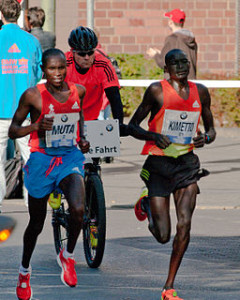 Fueling Strategies for Long Workouts and Events
Fueling Strategies for Long Workouts and Events
New research continues to show that the fastest distance performances require plenty of carbohydrates for fuel. Although previous research suggested that the body’s limit to absorb carbohydrates topped off at 60 g carbohydrates/hour, new studies show that if you mix two different types of carbohydrates you can absorb up to 90 g carbohydrates / hour. For reference, here’s the carbohydrate content of popular fueling sources:
- 1 energy gel – about 21 – 27 g carbohydrate
- 250 ml (1/2 standard water bottle) sports drink – about 27 g carbohydrate
90 g/hour is a lot and likely much more than most athletes are used to . . . but it’s possible and does fuel record performances. Note that this large amount of cardohydrates is likely only practiced by elite athletes who are able maintain high energy output/paces close to their max for long events in the 2 h – 2.5 h range –recreational athletes would be best to aim for the standard 30-60g/hour. For a marathon – if your time is in the 3-hour range aim for 60 g carbohydrates/hour; and if your finish time is 4 hours or more aim for 30 g carbohydrates/hour.
It’s very important that you practice and train your nutrition strategy during long workouts in training so you don’t have gut issues during on race day. See above section for ways to “train your gut.”
- Optimising nutrition in a bid to break the two-hour marathon mark (The Conversation, May 19, 2017)
- A Complete Guide to Proper Marathon Nutrition (Asker Jeukendrup)
- Marathon Nutrition: Fuelling for Marathon Training (Anita Bean)
- Does Carb Loading Make a Difference? (Matt Fitzgerald); Study-> Metabolic Factors Limiting Performance in Marathon Runners (Plos One, October 2010)
- Carbohydrate loading for endurance event? You probably need more carbs than you think!
- Haile Gebrselassie’s World Record Marathon Fueling Plan (Alex Hutchinson, Runner’s World)
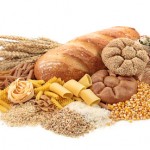 Athletes Avoiding Gluten and Grains: Is There Good Evidence?
Athletes Avoiding Gluten and Grains: Is There Good Evidence?
The gluten-free trend is a popular one, and many athletes have hopped on the bandwagon thinking it might improve their health, digestion, and athletic performance. Are they onto something, or can you keep enjoying your bread and pasta? Go to Article >>
The Importance of Hydrating
During strenuous activity, you lose fluid and electrolytes (sodium, potassium) through sweat. Dehydration can lead to fatigue, zap muscle strength, energy, concentration, and coordination, so you need to replace fluid and electrolytes by drinking. Sports drinks provide carbohydrates and replace electrolytes lost in sweat. Water is good (and sometimes preferred) for non vigorous activities, or activities lasting less that 1 hour.
Do I need a sports drink? Sports drinks are best for intense, prolonged training or racing. Most sports drinks contain a mix of carbohydrates that can be easily absorbed through your small intestine. The amount of carbohydrates (6 to 8 %) ensures that the drink can easily empty from your stomach. The sodium in sports drinks also helps absorption of fluid across the small intestine. For easier workouts, high carbohydrate snacks and water are fine. Just be sure you practice using a sports drink at some workouts if you are planning on using one during an event.
Can I make my own sports drink? You can dilute combinations of fruit juices to 100 calories per 16 ounces (about 1/3 juice to 2/3 water) and add a pinch of salt (1/8 tsp per 2 cups). However, this drink is high in fructose, which isn’t always as well tolerated as the combination of sugars in most sports drinks, especially for intense activity. For most purposes, diluted fruit juice is a convenient option. Also, here’s a homemade sports drink recipe that you might want to try.
More Reading on Hydration/Sports Drinks:
-
- Sports drinks (carbohydrate-electrolyte drinks) (AIS Sports Nutrition Fact Sheet)
- When do you really need a sports drink? (Christy Brisette)
- Coconut water for athletes has few solid benefits
- Optimal Composition of Fluid-Replacement Beverages (Comprehensive Physiology 2014, 4:575–620).
- Sports Nutrition and Carbohydrate Drinks (Peak Performance Online)
-
Whole Food Alternatives to Gels (Runners World)
Is Sugar Bad for Athletes?
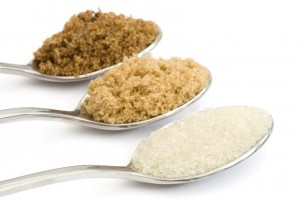 Sugar is Not the Enemy (especially for active people). Most people eat too much added sugar, and recent guidelines highlight the health effects of this habit. Some wonder if this overemphasis on one nutrient is overshadowing the large problem of inactivity. In fact, bodies that move are much better equipped to handle sugars: when diabetics exercise, they require less insulin to control their blood sugar; endurance athletes rely on sugar to fuel fast performances (here’s an example of the sugars a world record marathoner would ingest during an event). Although most of us aren’t running marathons (certainly not at that speed), exercise might mitigate the undesirable effects of sugar.
Sugar is Not the Enemy (especially for active people). Most people eat too much added sugar, and recent guidelines highlight the health effects of this habit. Some wonder if this overemphasis on one nutrient is overshadowing the large problem of inactivity. In fact, bodies that move are much better equipped to handle sugars: when diabetics exercise, they require less insulin to control their blood sugar; endurance athletes rely on sugar to fuel fast performances (here’s an example of the sugars a world record marathoner would ingest during an event). Although most of us aren’t running marathons (certainly not at that speed), exercise might mitigate the undesirable effects of sugar.
Because athletes rely on sugars in sports drinks, bars, and gels to fuel their performance, it’s important to limit simple sugars and refined carbohydrates at other times.
More Reading:
-
- Sugar and Athletes: Good, Bad or Evil? (Nancy Clark)
- How Sugar Affects the Body in Motion (Gretchen Reynolds)
What Should I Eat Before I Workout?
 Eating before exercising can be tricky: figuring out how to fuel for workouts in the early morning, lunch breaks, or supper-time takes some planning and practice. But it’s definitely worth finding a plan that works for you, since the food you eat before your workout has many benefits besides curbing hunger: it can help fuel your muscles and brain, top off your glycogen stores, increase motivation, decrease perceived exertion, boost your endurance and performance, and set the stage for faster post-workout recovery. On the other hand, what you eat (or don’t eat!) can also lead to lightheadedness, fatigue, cramping, or gastric distress. Go to Article >>
Eating before exercising can be tricky: figuring out how to fuel for workouts in the early morning, lunch breaks, or supper-time takes some planning and practice. But it’s definitely worth finding a plan that works for you, since the food you eat before your workout has many benefits besides curbing hunger: it can help fuel your muscles and brain, top off your glycogen stores, increase motivation, decrease perceived exertion, boost your endurance and performance, and set the stage for faster post-workout recovery. On the other hand, what you eat (or don’t eat!) can also lead to lightheadedness, fatigue, cramping, or gastric distress. Go to Article >>
After Workouts: Refueling for Recovery
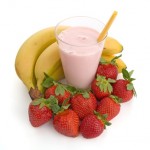 Most athletes realize that proper recovery is critical to athletic success: rest allows your body’s systems to adapt to the stresses of training and hopefully make you stronger and faster. Many athletes are not as aware, however, that you can maximize your training gains, speed up the recovery process, and enhance subsequent performance by consuming the right foods or fluids at the right times following a workout. Go to Article >>
Most athletes realize that proper recovery is critical to athletic success: rest allows your body’s systems to adapt to the stresses of training and hopefully make you stronger and faster. Many athletes are not as aware, however, that you can maximize your training gains, speed up the recovery process, and enhance subsequent performance by consuming the right foods or fluids at the right times following a workout. Go to Article >>
Healthy or Hype? Chocolate Milk for Recovery
Will chocolate milk help you recover after your workout? A look at the evidence. Go to Article >>
 Healthy or Hype? Protein Powder
Healthy or Hype? Protein Powder
The protein powder market is growing. Once primarily the realm of body builders (and sold in big tubs displaying pictures of big muscles), protein powders are now cleverly marketed to various demographics and available at most supermarkets. This wide availability and targeted advertising is prompting many to wonder if they need a protein supplement. This article looks at the evidence. Go to Article >>
More Sports Nutrition Reading . . .
-
- Athletes staying away from carbs: what you need to know. (Nancy Clarke)
- Recharge and Replenish – Recovery Nutrition (Kelly Anne Erdman, SNAC dietitian, coach.ca)
- Eating for Endurance – Making Sense of Sport drinks, Bars, and Gels (coach.ca)
- Competition Nutrition (coach.ca)
- Pre-event meals (Amercian College of Sports Medicine)
- Fueling the Young Athlete (coach.ca)
- Carbohydrate loading for endurance event? You probably need more carbs than you think!
Food and Recipe Ideas for Athletes
Energy Bars: What to look for and real food alternatives
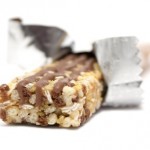 Energy bars are popular with many athletes because they are a quick and convenient source of calories that are easy to eat during workouts or as a handy snack. Although for the most part, real food is often better and preferable nutrition-wise, energy bars can good to have on hand. Traveling, training camps, and races are great times for the convenience of energy bars, since it can be more difficult to have a supply of food close by to refuel your working muscles. Go to Article >>
Energy bars are popular with many athletes because they are a quick and convenient source of calories that are easy to eat during workouts or as a handy snack. Although for the most part, real food is often better and preferable nutrition-wise, energy bars can good to have on hand. Traveling, training camps, and races are great times for the convenience of energy bars, since it can be more difficult to have a supply of food close by to refuel your working muscles. Go to Article >>
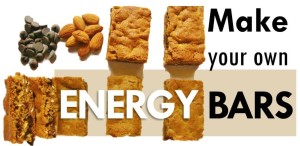 Energy Bars
Energy Bars
- Sheila’s Quick & Easy Oatmeal Bars
- Double Chocolate Peanut Butter Energy Bites
- Sesame Date Energy Bites
- Almond Butter Chocolate Chip Bars
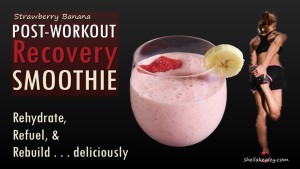 Smoothies & Shakes
Smoothies & Shakes
Some Great Recipe Sites for Athletes . . .
Sports Nutrition Resources
- Australian Institute of Sport
- Coaching Association of Canada – provides excellent sports nutrition information.
- Gatorade Sports Science Institute. Practical advice for athletes based on research and education in hydration and nutrition science.
- Nancy Clark
- Sports Dietitians Australia is a good resource with fact sheets covering the latest sports nutrition information and advice on a wide range of topics
- American College Sports Medicine
- Peak Performance (Beth Mansfield)
- BodySense: A Positive Body Image Initiative is an outreach initiative for athletes, coaches, and parents dedicated to fostering positive body image in male and female athletes to proactively prevent disordered eating.
- Sports Nutrition Research Updates and Articles
Sport Nutrition Books
-
- Nancy Clark’s Sport Nutrition Guidebook by Nancy Clark
- Vegetarian Sports Nutrition by D. Enette Larson-Meyer
- Advanced Sport Nutrition by Dan Bernadot
- Sports Nutrition for Endurance Athletes by Monique Ryan
- Sports Nutrition: From Lab to Kitchen by Asker Jeurendrup
Youth-Specific Sports Nutrition Resources
-
- Sports Nutrition for Youth: A Handbook for Coaches (Alberta Health Services)
- Fueling the young athlete (Coach.ca)
- Sports Nutrition for Young Athletes (Anita Bean)
- Eating to compete in high school (Christopher D. Jensen, PhD, MPH, RD)
- Sport nutrition for young athletes (Canadian Pediatric Society position statement)
- Sport nutrition for young athletes (SIRC)
- Nutrition for the serious young athlete – a practical approach (SIRC)
- Mom’s Team Nutrition Channel – great ideas for fueling and everyday eating for young athletes (Mom’s Team)
- Female athlete triad syndrome a growing concern->active girls need a lot of calories!
>>See More Sports Nutrition Resources here
____________________
Updated May 22, 2017
Share This:
